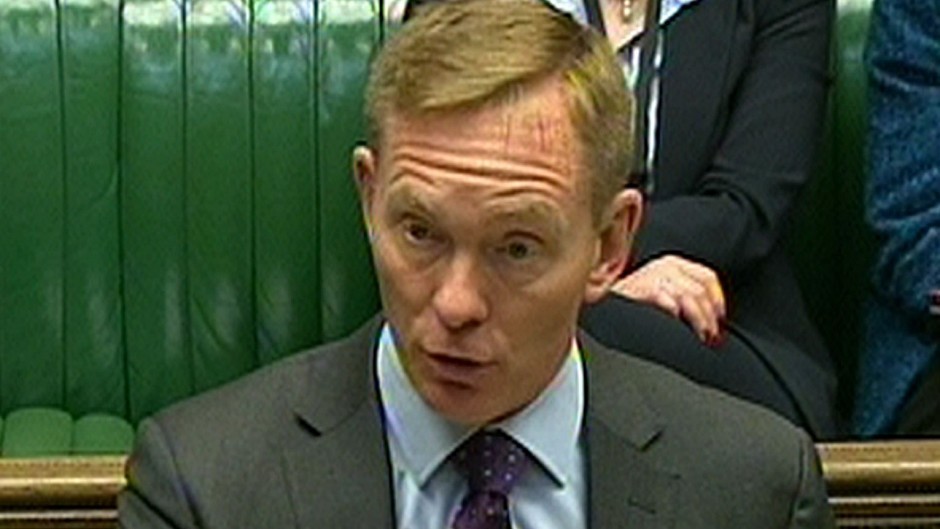A senior Labour figure has warned that the UK Government’s controversial plan for English Votes for English Laws (Evel) could prevent a Scottish MP from becoming prime minister or Commons speaker.
Shadow Commons leader Chris Bryant made the claim while giving evidence to the Scottish affairs committee yesterday.
The Conservatives’ proposal would amend the rules of the House to ensure that English MPs have an effective veto over proposals which only affect their constituents.
Mr Bryant said the system would create a second tier of MPs and “undermine the constitution”.
Asked if it would prevent Scottish or Welsh MPs taking senior positions in the House, he said: “There is a real danger that there would never be another Scottish speaker again or a Welsh one.”
When SNP committee chairman Pete Wishart said Evel would prevent a Scottish or Welsh MP becoming prime minister again, Mr Bryant replied: “I think you make a very strong argument.”
When Mr Wishart said it would mean “we would not be able to have a Scottish prime minister”, Mr Bryant added: “Or even a Welsh one.”
But Commons leader Chris Grayling, who also appeared before the committee, rejected the notion.
Asked by John Stevenson, the Conservative MP for Carlisle, if there was a danger that future secretaries of state could not be Scottish MPs, Mr Grayling replied: “I wouldn’t want to see that. I would want the best person for the job.”
Asked if Evel could result in a situation where a prime minister could not come from a Scottish constituency, he added: “Just the opposite.
“With a stronger Union, we should make sure the prime minister should be able to come from any part of the UK.”
Mr Bryant described the change proposed under Evel as “significant” – despite arguing it would have only affected 25 bills since 2001, with only one resulting in a different outcome.
He said: “I am in favour of an English voice but not an English veto.”
He suggested that a majority of English MPs voting against an English matter should be registered and noted, but not overturn a vote.
